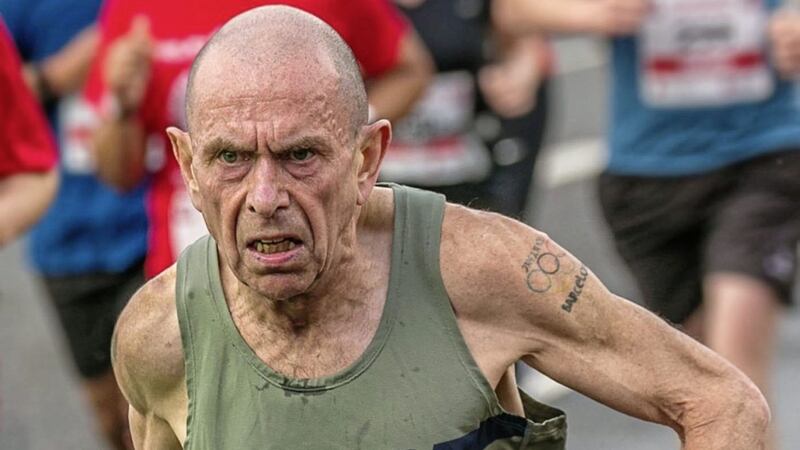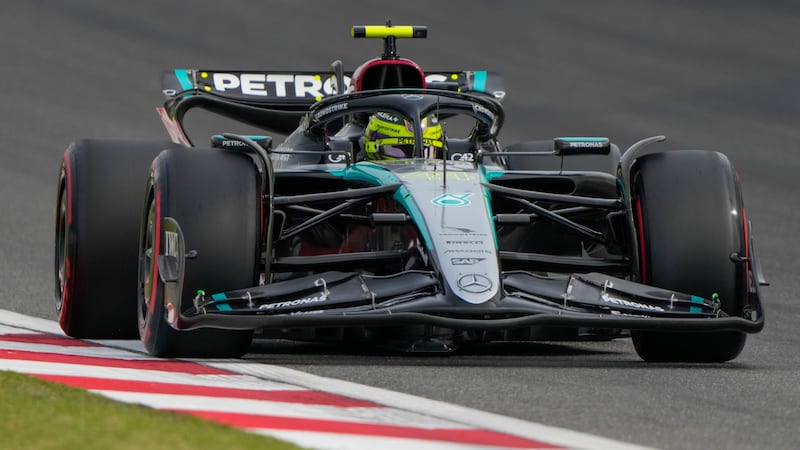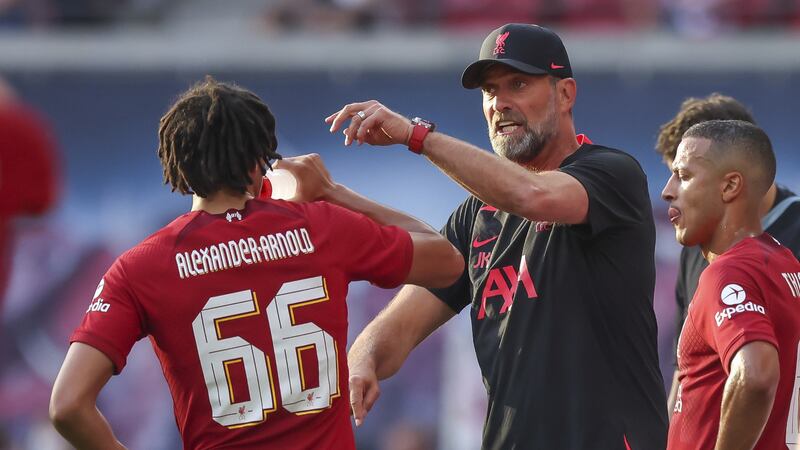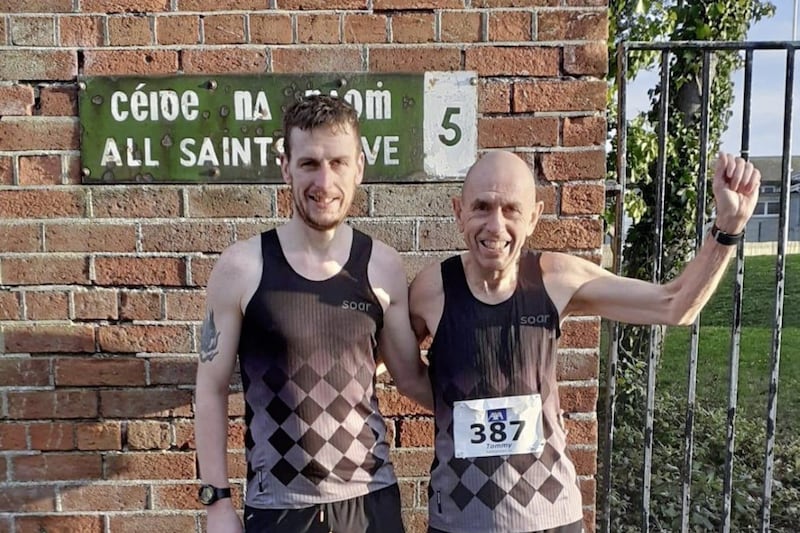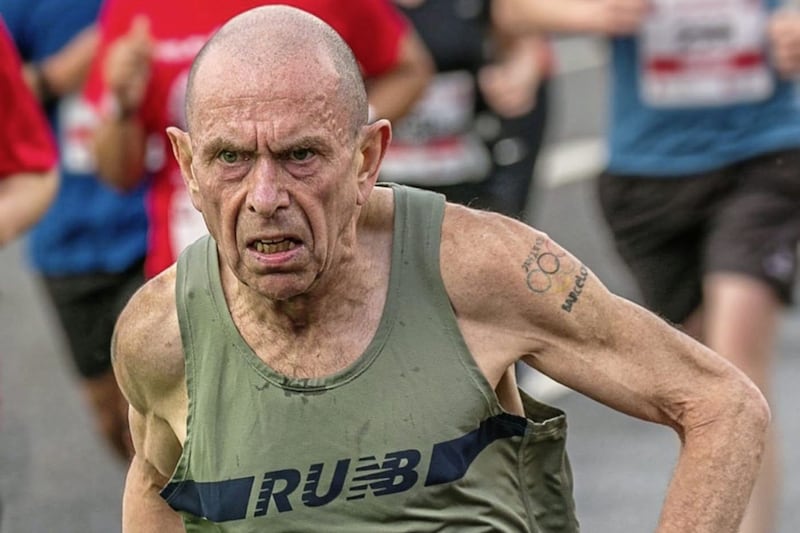Finally, it’s official.
After a long wait, Tommy and Eoin Hughes have received confirmation that they are now the Guinness world marathon record holders for the fastest parent and child.
The County Derry men registered an aggregate time of four hours 59 minutes and 22 seconds at the Frankfurt Marathon on October 27 last year.
The individual times were 2:27:52 for the father Tommy (59) while son Eoin (34) set a personal best of 2:31:20.
That was two minutes and 50 better than the previous mark set at the 2014 London Marathon by Graham and Ben Green from Warrington.
Earlier Tommy and Eoin had made an attempt to set another Guinness world record at the Belfast Half-Marathon last September but came up 20 seconds short of the combined 2:20:33 goal, despite Eoin finishing second overall in 1:08:30.
Eoin entered the ranks of veterans in January this year while Tommy also turned 60 the same month, and they had hoped to compete in the World Masters’ championships in Canada this August but unfortunately that is one of the many fixtures cancelled as a consequence of the Covid-19 pandemic.
A recent study of the Frankfurt performance, published in the Journal of Applied Physiology, has thrown up some interesting data.
The study analysed the divergent physiologies and athletic histories of the father and son.
Not surprisingly it raised intriguing questions about the roles of genetics, environment and training in marathon success, and it highlighted that one person’s route to a fast time could be quite different from another’s, even in the case of a father and son.
The new study followed an earlier screening of Tommy following his single-age world record of 2:30:15 at Rotterdam in April, 2019.
That performance caught the attention of researchers at a number of institutions who study elite athletes, including the Inserm research organization in France. Inserm is the only public research organization in France entirely dedicated to human health.
Its objective is to promote the health of all by advancing knowledge about life and disease, treatment innovation, and public health research.
They promptly invited Tommy to their lab for a detailed examination into what made him so outstanding for his age.
They were already aware that in his prime he had represented Ireland in the marathon at the Barcelona Olympics in 1992, finishing 72nd in 2:32:55, five minutes slower than he ran in Frankfurt.
He then quit running for 16 years before signing up for the 2008 Belfast marathon where, with little training, he finished sixth.
The researchers found that his aerobic capacity, even at 59, remained exceptionally high despite years without running.
The scientists put this down to his training regime that sees him log at least 100 miles every week by running twice a day and using local 5K and 10K races as speed work.
During the testing, Tommy mentioned that he and his son Eoin were planning to enter the Frankfurt marathon, with the target of breaking the Guinness world record for fastest parent and child aggregate marathon time.
The researchers saw that there was a unique opportunity to carry out a compare and contrast exercise into the physiological similarities and differences of the two runners.
So, they invited both of them to the lab and completed more tests, including measuring Eoin’s maximum aerobic capacity, which was found to be similar to that of his father. They tracked each man’s oxygen uptake (VO2) at various race paces so that the researchers could gauge how much effort they were putting in at any given time.
Then they waited for the marathon which, although it was a success in that they set a new world mark, produced divergent results for the father and son.
Tommy finished almost four minutes ahead of his son with his pace hardly varying from start to finish. Eoin, on the other hand, went off hard at the start but then fell back, finishing the second half of the race about 6 percent slower than the first 13 miles.
Eoin’s workload was also slightly lighter than that of his father, his average pace represented about 85 percent of his maximal endurance capacity, meaning he was pushing himself hard. But his father’s average pace hovered at around 90 percent of his maximal capacity, suggesting a greater tolerance to discomfort.
But what can you take from the study if you want to improve your running?
The first thing is that there are more approaches to training than one.
Nevertheless high mileage and frequent races over shorter distances seems to work. The second, is to choose your parents carefully. Eoin Hughes certainly did that.
